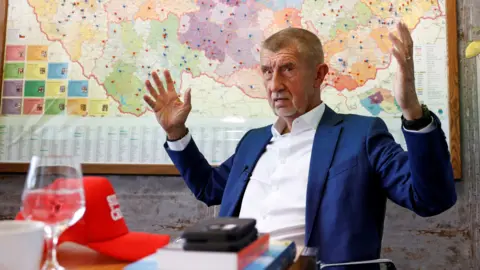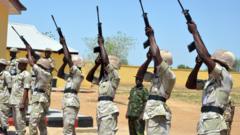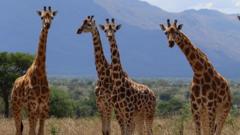In a significant twist in Cameroon’s political landscape, key opposition figure Maurice Kamto has been barred from participating in the upcoming presidential election scheduled for October 12. This decision, made by the electoral authority Elecam, comes as a surprise since Kamto was the primary challenger to President Paul Biya in the last election, where he finished second amid widespread allegations of electoral fraud.
The list of approved candidates was drastically slimmed down to 13 from a pool of 83 applicants, with no explanation provided for Kamto's exclusion. Meanwhile, President Biya, the world's oldest president at 92 years old, continues to assert his authority, declaring his intention to pursue an eighth term despite persistent calls for his resignation after nearly 43 years in power.
In this upcoming election, Biya faces competition from two former allies, Issa Tchiroma Bakary and Bello Bouba Maigari, who hail from the politically influential north. Despite a recent initiative to connect with younger voters through social media, Biya's approval remains uncertain among the youth demographic.
Kamto, who previously led the Cameroon Renaissance Movement (CRM), has switched allegiance to the Manidem party, which holds local representation, as his former party was barred from endorsing any candidates this election cycle due to its absence of elected officials in both the national assembly and local councils.
Among other cleared candidates are anti-corruption advocate Akere Muna and the Social Democratic Front's Joshua Osih, along with prominent lawmaker Cabral Libii. Notably, Patricia Tomaino Ndam Njoya stands out as the sole female candidate on the ballot. Those who have been excluded from the race have a brief window of two days to lodge an appeal with the constitutional council regarding their disqualification.
The political climate in Cameroon remains fraught with tension as many citizens express skepticism about the integrity of the electoral process, highlighting ongoing struggles between government forces and separatist groups in various regions of the country.
The list of approved candidates was drastically slimmed down to 13 from a pool of 83 applicants, with no explanation provided for Kamto's exclusion. Meanwhile, President Biya, the world's oldest president at 92 years old, continues to assert his authority, declaring his intention to pursue an eighth term despite persistent calls for his resignation after nearly 43 years in power.
In this upcoming election, Biya faces competition from two former allies, Issa Tchiroma Bakary and Bello Bouba Maigari, who hail from the politically influential north. Despite a recent initiative to connect with younger voters through social media, Biya's approval remains uncertain among the youth demographic.
Kamto, who previously led the Cameroon Renaissance Movement (CRM), has switched allegiance to the Manidem party, which holds local representation, as his former party was barred from endorsing any candidates this election cycle due to its absence of elected officials in both the national assembly and local councils.
Among other cleared candidates are anti-corruption advocate Akere Muna and the Social Democratic Front's Joshua Osih, along with prominent lawmaker Cabral Libii. Notably, Patricia Tomaino Ndam Njoya stands out as the sole female candidate on the ballot. Those who have been excluded from the race have a brief window of two days to lodge an appeal with the constitutional council regarding their disqualification.
The political climate in Cameroon remains fraught with tension as many citizens express skepticism about the integrity of the electoral process, highlighting ongoing struggles between government forces and separatist groups in various regions of the country.




















